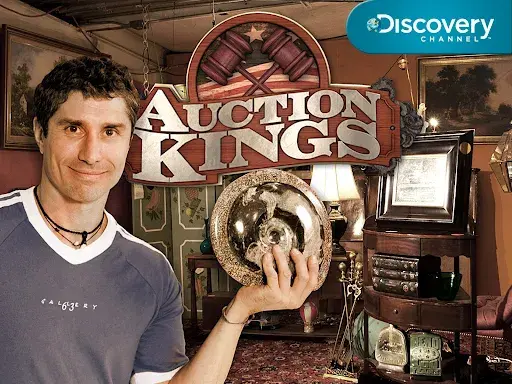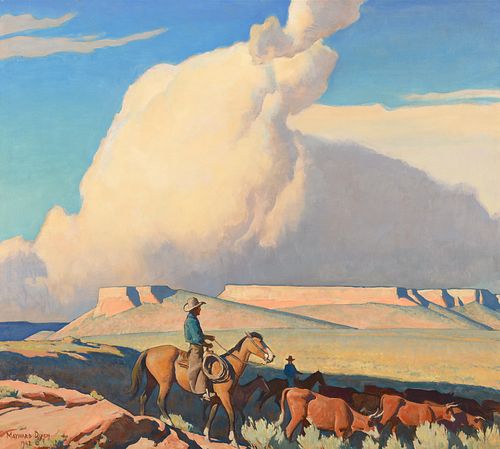Morphy Auctions presents formidable lineup of Edged Weapons, Armor & Militaria, Aug. 18-19

DENVER, PA.- While writers may offer a particular perspective of what happened during a war or conflict, their accounts cannot rival the impact of actually seeing and holding objects that survived such pivotal events. That belief is what underscores Morphy’s popular semiannual Edged Weapons, Armor & Militaria sales. The next live gallery auction in this series is slated for August 18-19 and includes outstanding additional collections of Bowie knives and both Western and Native American art and relics. More than 2,400 lots will be offered at the live gallery event, with all remote forms of bidding available, including phone, absentee, and live online through Morphy Live.
The charge will be led by an extremely rare and important US Army dress frock coat belonging to Civil War General William Tecumseh Sherman. Dating to 1869-1872, it is believed to be one of only a few existing uniform coats from this particular period of Sherman’s career. A second such coat, from a private collection, is shown in Langellier’s Army Blue (Vol. 1, Page 28); while a third is held in the Smithsonian’s collection but is not on public view. “This coat is configured in the pattern established by the War Department in 1866 for use exclusively by the ‘General Commanding the Army.’ Only two officers would have qualified to wear such a coat – Sherman and Grant,” said Dan Morphy, founder and president of Morphy Auctions. The auction estimate is $40,000-$60,000.
A remarkable handmade Civil War relic is the pipe that was carved by Private John Crawford of Company F, 18th New York Volunteers. It is profusely decorated overall with raised carving that includes the soldier’s name and those of his regimental commanders; various American symbols and mottos; and the regiment’s 1863 muster date. The beautifully carved pipe is the embodiment of a pastime many Civil War soldiers adopted to take their minds off the battlefield. Estimate: $2,000-$3,000
Flag collectors can always count on Morphy’s militaria sales as a source for significant acquisitions. There are 18 flags in the Aug. 18-19 auction, with a top highlight being a 20-star cotton and linen American Flag. Made circa 1817-1818, its 20th star represents the admission of Mississippi to the Union on Dec. 19, 1817. This design would have remained valid till December 3, 1818, when Illinois became a state, thus necessitating the addition of a 21st star. Estimate: $10,000-$20,000
European military history pre-dates America’s foundation by many centuries, but there are few periods from that long timeline that fascinate quite as much as the days when knights were bold. Solid-plate armor of iron or steel came into use in the 14th century, replacing chainmail. An outstanding example of this traditional type of metal workmanship appears in the form of a composite full suit of German armor strongly reminiscent of the style of Anton Peffenhauser of Augsburg. Standing 83 inches tall on a hardwood stand, it includes parts with various dates of manufacture that, together, comprise a very finely constructed, well-mounted presentation. Estimate: $30,000-$60,000
An exciting new discovery leads the edged weapons portion of the sale: a circa-1830s Shively, Philadelphia, Bowie knife known as the “Improved Pattern” model. Its straight-back blade has an 11 3/16-inch sharpened false edge, ground mainly from the right side. It is in excellent original condition and comes with an incised and nickel-silver-accented leather sheath. “This rare knife is fresh to the market and has not been previously recorded or illustrated in any reference books. It’s already attracting a lot of bidder interest,” Dan Morphy noted. The pre-sale estimate is $30,000-$60,000.
Also a recent find, a 15¾-inch clip-point Bowie knife with an ivory “coffin” handle is of the very type that serves as the logo for the Antique Bowie Knife Association. The knife was made circa 1835-1838 by Benglish & Hubers of Philadelphia and is unquestionably one of finest examples known. Retaining its original stud-decorated leather sheath, it will make its public debut with a $20,000-$30,000 estimate.
A marvel of artistry, an automatic lock-back folding art knife by Rick Genovese (Tonto Basin, Ariz.) has a 4-inch double-ground blade and a frame and handle covered in a “Pirate’s Bounty” theme with bas-relief engraving by Italian master Daniele Pozzi. Rubies, diamonds, emeralds and pearls are set in 24K yellow, pink, red, green and white gold, with additional silver accents. The 10-inch (full length) knife was a commissioned work and is now offered with an auction estimate of $25,000-$35,000
Another showstopper from the selection of approximately 200 knives offered is a fabulous 50-blade folding knife featuring a mother-of-pearl swell-center handle. Its maker’s mark consisting of the crossed letters “P” and “J” represents Julius Pitz Sohne. In excellent to near-mint condition, it is expected to reach $8,000-$12,000.
The auction includes a substantial selection of Western, Gold Rush and Native American art and relics. Notable lots within the Native grouping include a classic circa-1875 Northern Plains bow case and quiver attributed to Crow and described and depicted in a book written by Carl Moon and John Baldwin. Made of tanned hide with a handsome beadwork motif, the set includes a bow, three sets of arrows, and tips. Estimate: $12,000-$16,000.
A circa-1880s Blackfoot “Southern Peigan” beaded-hide war shirt has conveyed with an intriguing (although unverified) provenance over the past 140 years. It is said that the shirt was acquired from the original Alberta, Canada, family of the warrior by a museum, which returned it to them when the business closed in 1980. Purportedly, it was later traded to a rustic furniture maker in Montana. It now comes to auction at Morphy’s with a $12,000-$16,000 estimate.
Also deserving of special mention is the matching pair of large (23 by 13-inch) Sioux beaded and quilled tepee bags displaying a geometric motif with tinkle cones and horsehair drops throughout. Circa last quarter of the 19th century, the bags are offered with a lot estimate of $8,000-$12,000.










